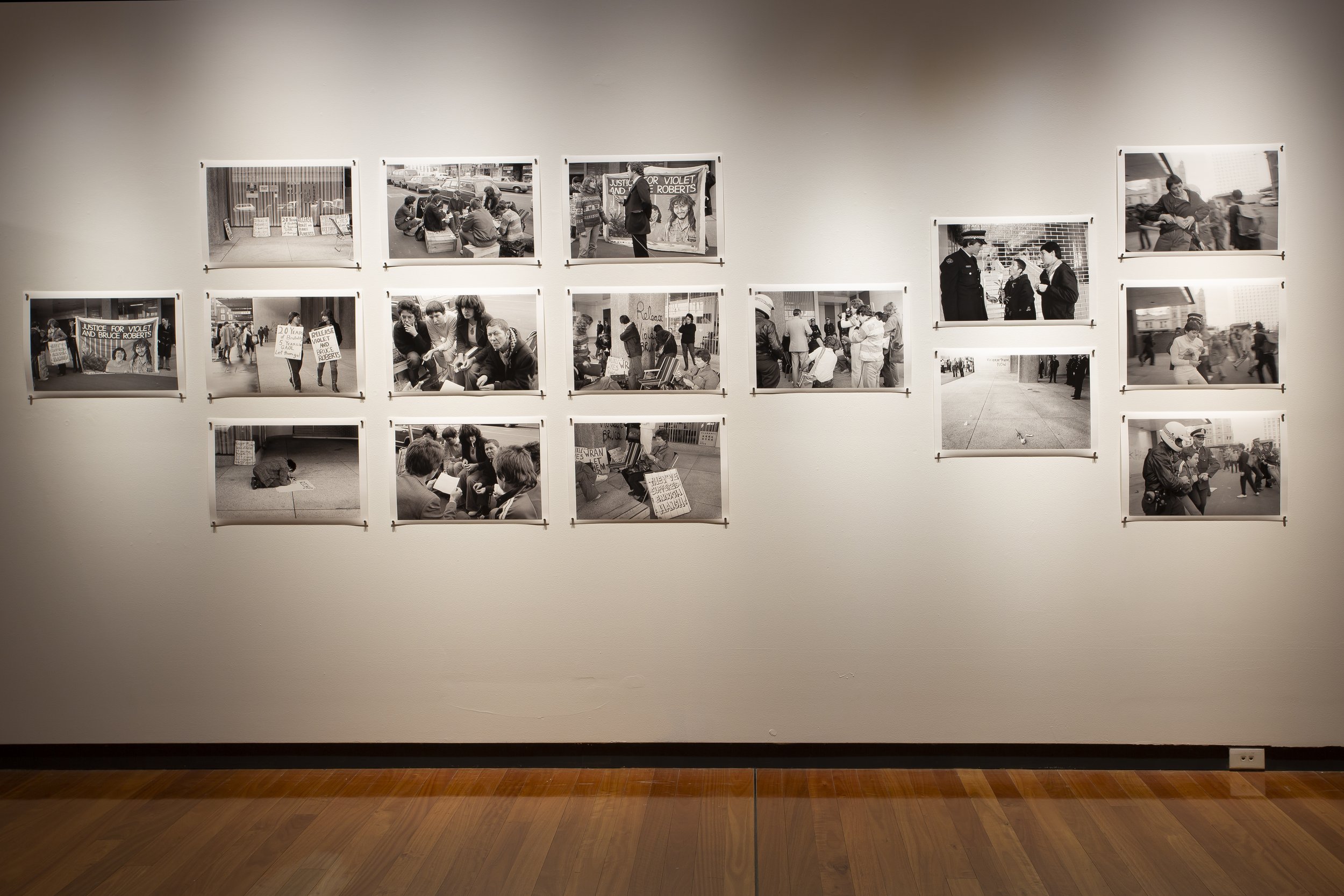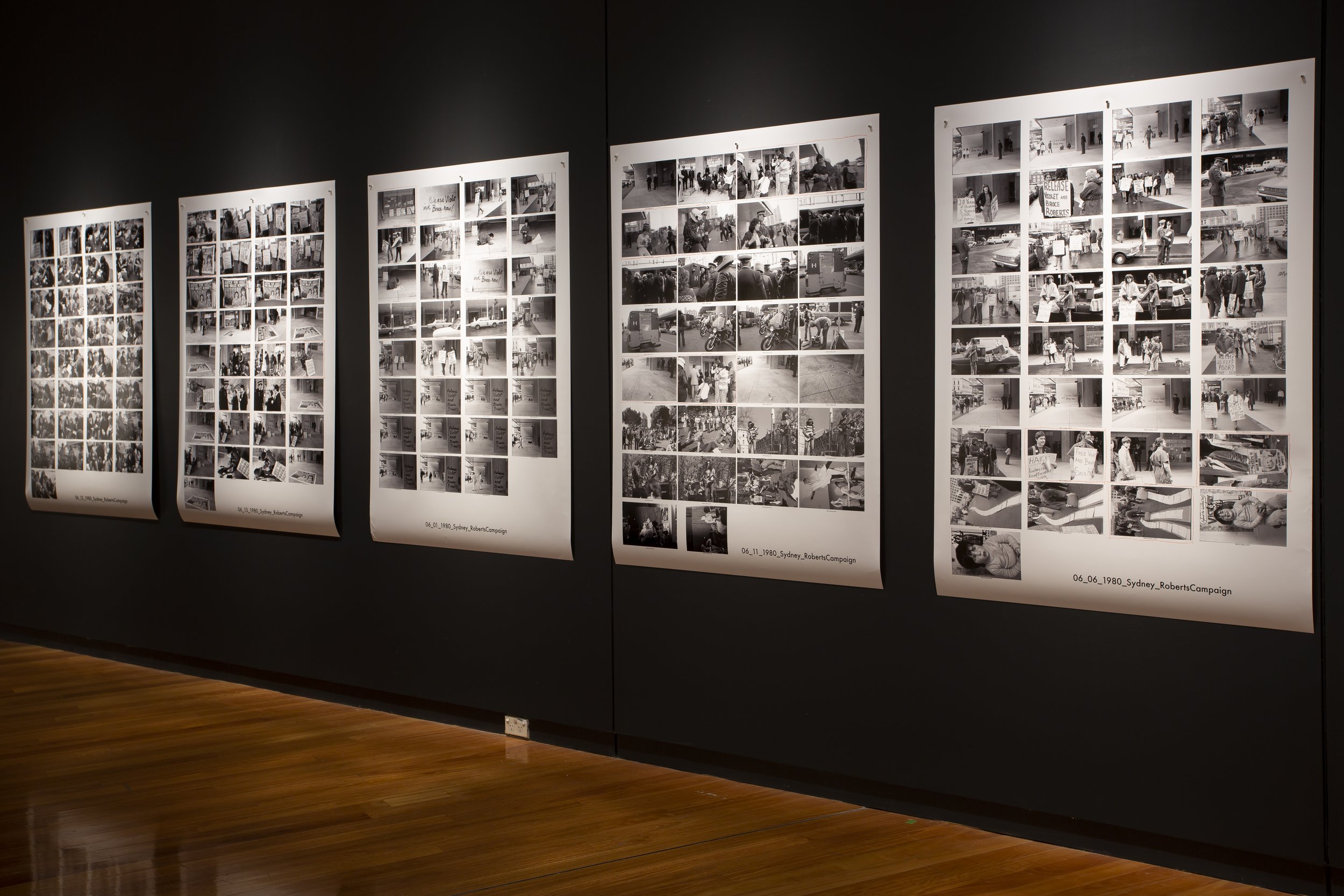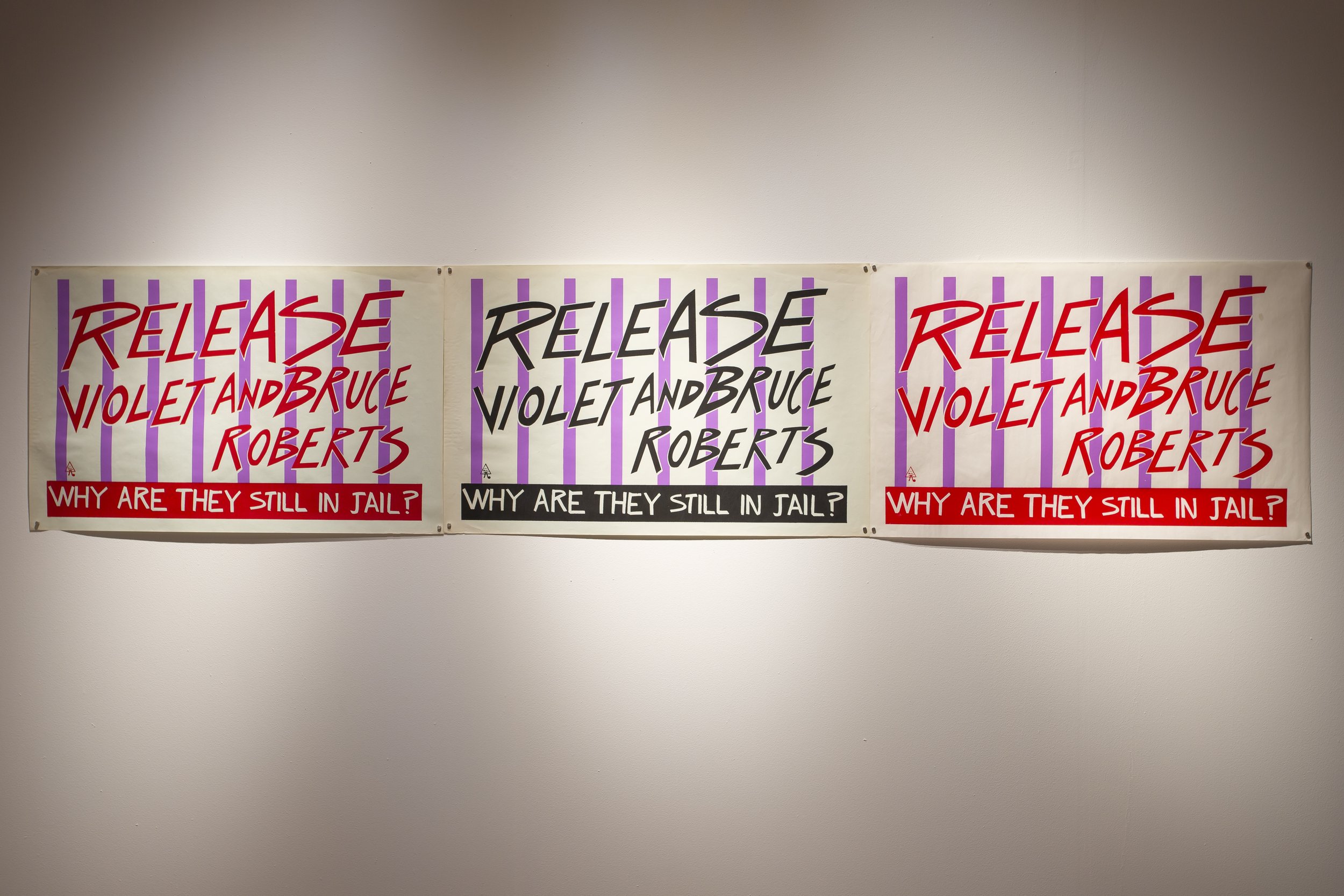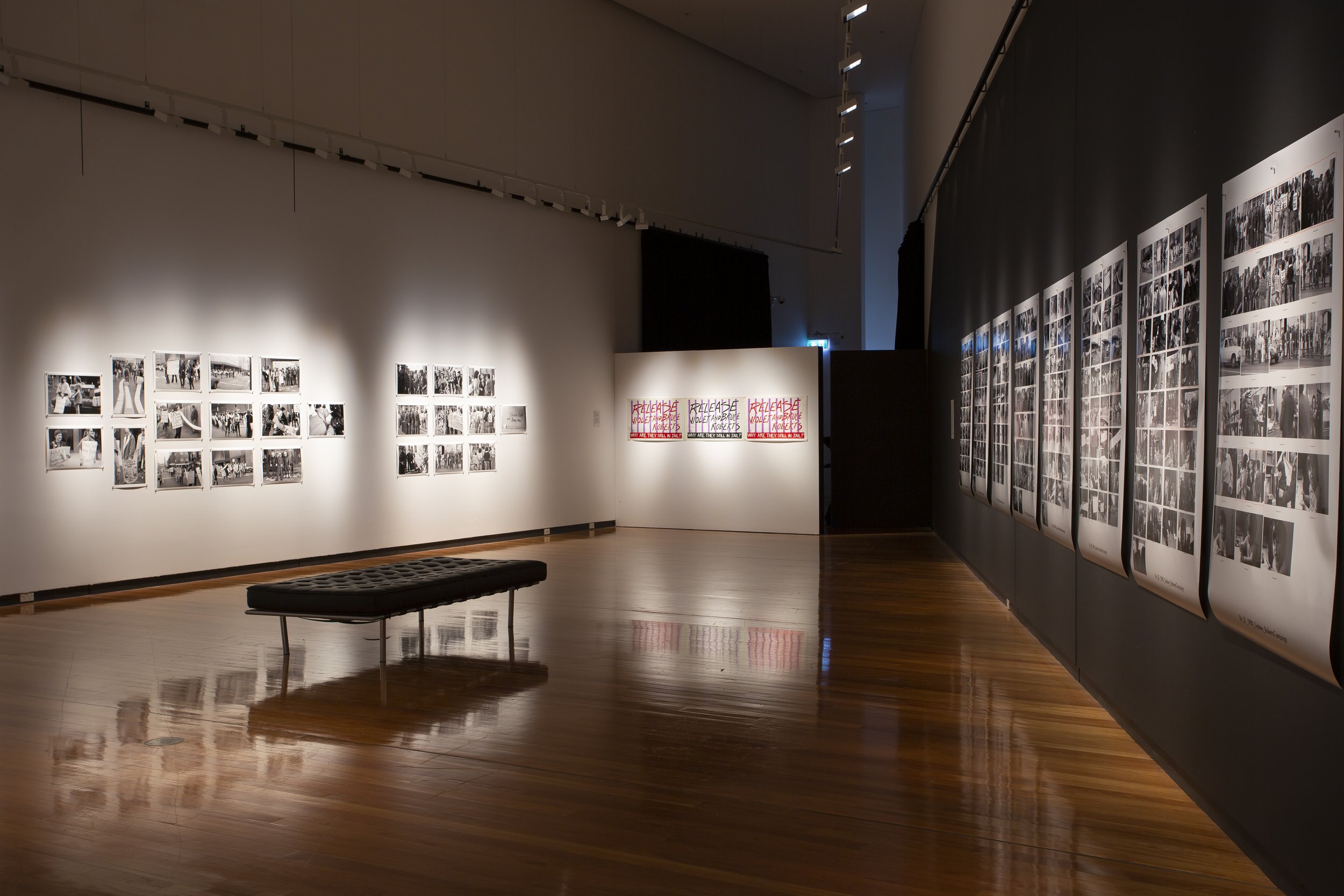Picturing a shared legal history: Helen Grace and Julie Ewington’s ‘Justice for Violet and Bruce’
/In early June, Wagga Wagga Art Gallery welcomed artist Helen Grace and curator Julie Ewington, both based in Warrang/Sydney, into their New Media Project Lab to present the exhibition ‘Justice for Violet and Bruce’.
In 1976, Violet Roberts and her son Bruce were convicted of murdering Eric Roberts, Violet’s husband and Bruce’s father who had been the long-term perpetrator of domestic violence against them. Details of the abuse endured by Violet and Bruce were omitted from their trial. At the time, the New South Wales (NSW) Crimes Act 1900 stated that a defence of provocation could only be argued if the killing had occurred during an attack from the abuser.
There was mass public outcry following Victoria and Bruce’s imprisonment, spearheaded by ‘Women Behind Bars’, an activist group based in Warrang/Sydney. Between May and October of 1980, the group staged vigils, marches and launched a petition in a campaign that drew widespread attention to the Roberts’ case and advocated for their release. Spurred on by an increased understanding of domestic violence within the community, the work of ‘Women Behind Bars’ successfully galvanised public support for the Roberts’ cause.
‘Justice for Violet and Bruce’ focuses on Grace’s photographic archive from 1980 in which she documented the grassroots campaign to free Violet and Bruce. The artist’s photographs, which are being shown for the first time, are exhibited alongside street posters and a campaign banner on loan from the National Museum of Australia. As part of their residency project, Ewington and Grace invited curators based in regional areas to attend a workshop at the Wagga Wagga Art Gallery. The visitors were granted access to Grace’s extensive archive in order to explore different selections and layouts for the exhibition. Participants encountered photographs of women being dragged away by police, activists sporting 1980s mullet hairstyles carrying the petition through the streets, and women scrawling posters and signs on the ground amid the chaos.
In what Grace refers to as her ‘activist existence’, these feminist campaigns and protests became part of her everyday life. Forty years later, through an intimate digitisation process, the artist, realised that in her mission to document the ordinary, she had in fact captured the extraordinary. Today, Grace’s evocative photographs possess the same resonance they did in 1980, with the artist saying recently: ‘I was struck by how all the issues I was concerned with are still very current — concerns that are at least for me, over 40 years old and still relevant. We haven’t made enough progress.’
After years of campaigning, Violet and Bruce were released from jail on 15 October 1980. Their case changed the NSW Crimes Act 1900 to recognise the impact and effects of domestic violence.
Ashleigh Adams, Wagga Wagga
Presented by the New Media Project Lab, ‘Helen Grace and Julie Ewington: Justice for Violet and Bruce’ is currently on display at Wagga Wagga Art Gallery until 17 July 2022.








